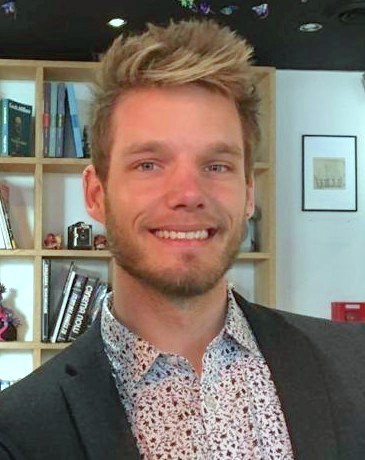We are extremely proud of all our colleagues who are contributing to the COVID-19 emergency response. We want to celebrate them by highlighting their contributions over the next few weeks in this mini-series of ‘LMS Emergency Response to COVID-19’. Today we want to introduce you to one of our post-docs; Dr Aubin Fleiss, who is helping with COVID-19 testing.

What is your current role within the COVID19 response?
My current role with the COVID-19 response is first of all to stay home as much as possible! That being said, rapidly after COVID-19 started spreading in the UK, we at the LMS received emails about research teams calling for volunteers with various skill sets. Since I use a programmable robot in the lab at LMS to perform a variety of molecular biology tasks I thought I could maybe help in automating testing procedures in labs equipped with robots. I received a grouped email from OpenCell London looking among others for people that know how to program the Opentrons OT2 robot, which so happen to be the robot we have in the lab. So I got in touch with them and joined the programming team. With the help of other volunteers I have been working on an automated protocol to extract RNA from patient samples. More developers are currently writing the protocol for testing the samples by RT-qPCR.
How do you envision that is going to help in the fight against COVID19?
OpenCell London is driving an amazing project, the goal of which is to build scalable, automated Mobile COVID19 Emergency Testing Facilities in shipping containers. I like the idea that any container can rapidly become an independent lab with a testing capacity of 2400 samples per day for a single staff member. In this project, automation is key to high-throughput, repeatable and cheap testing. I am happy I could bring my contribution to this ambitious and promising project.
What is your research at the LMS about?
As a post-doctoral research scientist, I am interested in modelling fitness landscapes of proteins. The fitness landscape of a protein is in essence a “map” indicating how each possible mutation(s) in the sequence of a protein affect its function. Indeed, even if we mostly hear about mutations causing diseases, not all mutations are deleterious! At the moment I am working on the fitness landscape of AP-endonucleases, a family of proteins that are involved in DNA repair (for instance after DNA has been damaged by UVs) and one family of disordered proteins, which are protein that have no stable structure but instead keep changing shape. Due to technical limitations, disordered proteins have remained largely understudied until recently, yet they are highly interesting as they are present in almost all living organisms and play a central role in many key cellular processes.
